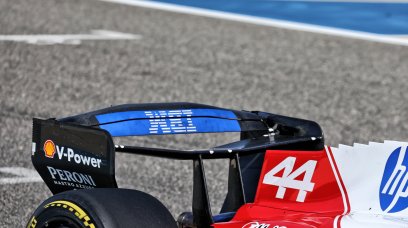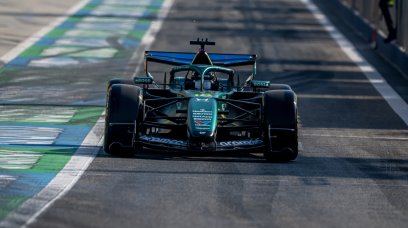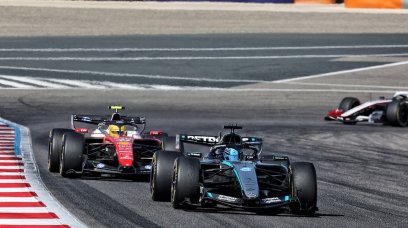At first glance, it’s a car that appears to be a logical evolution of the AMR23, from which it inherited the basic aerodynamic concept which includes the sloping Red Bull-style sidepods and the upper channel which had characterised them last season. In reality, just by looking at the sidepods, we can see how the aerodynamic concept has been taken to the extreme at the level of the inlets which have been reduced to the size of letter boxes. There is also the presence of a very pronounced front lip, which in the front-facing view, makes the front opening practically invisible. This is the extreme version of the concept developed last season by Red Bull, which has the function of considerably increasing the airflow directed to the channel between the sidepods and the floor. In essence, it appears increasingly clear that one of the strategic areas of the 2024 ground effect cars is precisely the lower front section of the sidepods, for the management of the laminar airflow directed to the rear. The radiators are very raised compared to the floor of the car featuring a strong inclination with respect to the vertical axis.
At the front, the suspension layout seems unchanged, although a different angle of the suspension wishbones can be identified. The nose, on the other hand, lies on the second element of the wing, unlike the previous car where it extended to the leading edge of the first element. It is situated at the bottom to determine the downwash of the underlying airflow directed towards the t-tray at the centre of the floor. At the rear, the suspension layout now uses push rod having used pull rod on last year's car. The bars have been raised to ensure greater freedom in the design of the diffuser throat. The gearbox, designed and manufactured by Mercedes, is much more compact in terms of length than the previous version. This resulted in a slightly different weight distribution and the cockpit also appears slightly set back compared to the predecessor. The new design of the air intake is interesting - while maintaining the three-part division from last year, it now features a more rounded profile at the bottom. The dissipation of the hot air coming out of the strongly inclined radiators is guaranteed by the generously sized rear vent, to which louvres or gills should be added in the lower part of the engine cover. The floor will undergo several evolutions starting from the tests in Bahrain, as will the wings, starting from the rear which is supported by a single pylon. The AMR24 is a car that does not surprise at first sight, but reveals a very precise study in certain areas, with the aim of correcting the aero and dynamical balance of the previous car.
Most read








